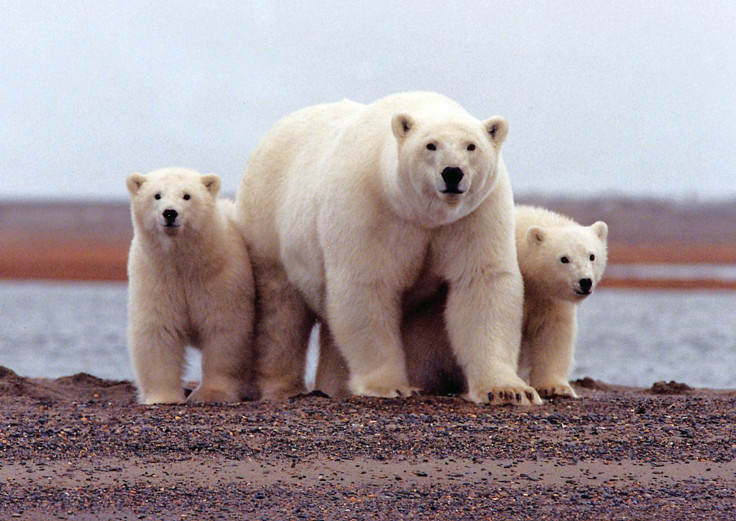Polar Bears Cannot Adapt To Extended Food Deprivation As Arctic Warms Up

The loss of sea ice in the Arctic has surpassed predictions, raising concerns about the future of polar bears as they are unable to sustain themselves without food for increasingly longer periods in the summer, a new study has found. The growing threat to the animal, whose native range lies largely within the Arctic Circle, also led to its listing as a globally threatened species under the U.S. Endangered Species Act in 2008.
For survival, polar bears mainly depend on hunting seals on the surface of the sea ice, most successfully from April to July. But rising global temperatures can extend the period of sea ice retreat, which can reduce polar bears’ opportunities to hunt seals. And while some earlier studies have suggested that polar bears can go for long periods without food in the summer by lowering their physical activity -- a process that scientists refer to as “walking hibernation,” the new study, published in the journal Science on Thursday, found little indication of such a phenomenon.
“We found that polar bears appear unable to meaningfully prolong their reliance on stored energy, confirming their vulnerability to lost hunting opportunities on the sea ice -- even as they surprised us by also exhibiting an unusual ability to minimize heat loss while swimming in Arctic waters,” John Whiteman, a doctoral student at the University of Wyoming and the study’s lead author, said, in a statement.
The researchers conducted the study on more than two dozen polar bears between 2008 and 2010. They implanted temperature loggers on the bears and tracked their subsequent movements on shore and on ice in the Beaufort Sea, which lies north of Alaska and Canada.
After the successful completion of their study, the researchers concluded that polar bears are unlikely to avoid harmful declines in body condition, which could lower the chances of their survival. According to the researchers, the trend will continue with constant ice loss and the "lengthening of the ice-melt period."
“It's definitely a different line of evidence that further supports that they can't conserve energy when they're fasting,” the Associated Press quoted Karyn Rode, a wildlife biologist at the U.S. Geological Survey (USGS) in Anchorage, as saying.
The new findings followed a recent study, led by a team of USGS scientists, which revealed that polar bears that are increasingly forced on shore due to sea-ice loss are unlikely to thrive on terrestrial food, including berries, birds and eggs.
According to an estimate by the International Union for Conservation of Nature, there are 20,000 to 25,000 polar bears in the world, 60 percent to 80 percent of which are in Canada.
© Copyright IBTimes 2025. All rights reserved.






















